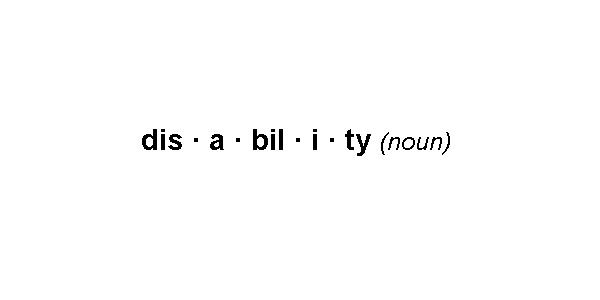There are many definitions of disability in the law. These definitions exist for different purposes, are sometimes set forth under different statutes and regulations, and are assessed in the eyes of different agencies of the federal and state governments. As disability lawyers, we devote our time to understanding the nuances of these differences.
While there are certainly similarities to other provisions of law, the Social Security Act defines disability in a unique fashion. A disability attorney cannot assume, for example, that the Americans with Disabilities Act (ADA) — which focuses on federally-mandated accommodations for the disabled — treats the term disability in the same manner. After all, Social Security is focused on a definition that determines eligibility for benefits.
Even among programs that deal with payment of benefits — such Veterans benefits, Unemployment Benefits, Medicaid benefits or Workers Compensation benefits — there are differences between these programs and with the various disability programs offered through the Social Security Administration.
For example, VA or Workers Compensation benefits use a percentage system to measure the degree of a person’s disability. This percentage influences the amount a person receives in benefits. The Social Security definition does not use such percentages. In order to be found disabled by Social Security, a person must be entirely unable to perform their past work or any other competitive work in the national economy – a much higher hurdle.
Certainly, private insurance companies which sell disability insurance policies have their own definitions of disability in their policies as well, which may be more strict or less strict than the standards for various government programs.
The legal definition used by the Social Security Administration defines “disability” as follows: “The inability to do any substantial gainful activity by reason of any medically determinable physical or mental impairment which can be expected to result in death OR which has lasted OR can be expected to last for a continuous period of not less than 12 months.” 42 U.S.C. Section 423(d) (the Social Security Act, as amended).
As with any provision of law, there is meaning invested in each word and phrase of this statutory definition, many of which are themselves carefully defined terms of art unique to Social Security disability law. All good disability attorneys will understand the emphasis and meaning behind each word.
Substantial gainful activity refers to work which results in earnings which reach a minimum level on a monthly basis over a sustained period of time. The amount of earnings which qualifies as “SGA” is adjusted year to year and can be found at the agency’s website. In 2015, the SGA threshold is slightly more than $1,000 in gross earnings per month.
Usually, the ability to do work also relates to the ability to perform full-time work; this is work performed 8 hours per day, 5 days per week, or an equivalent schedule. It also relates only to work which can be sustained over time on a “regular and continuing basis.” See Social Security Ruling 96-8p. Depending on income levels and other factors, therefore, a person who can do part-time work or short-term work should still contact a disability attorney to see if they could qualify as disabled under the Social Security rules and regulations.
The agency’s definition makes clear that a disability can be the result of a physical medical condition, a mental health problem or some combination of the two.
Duration is also of importance. A medical condition which will heal or resolve within less than a year, or which would be improved as a result of reasonable treatment to the point a person could return to work in that time, is not a sound basis for a finding of disabled under the Social Security Administration’s standards. A condition which is terminal, or which has already lasted a year, or is serious enough that it is expected to last a year or more, meets the duration test. If this is your situation, do not hesitate to contact a disability attorney.
What This Means for You and Your Disability Attorney
Because of these differences and nuances in the definition of disability, a disability attorney might help you legitimately and lawfully receive unemployment benefits while pursuing a disability claim (as unemployment may be payable even if a person is only capable of part-time or short-term work in some states). Although many Social Security Administrative Law Judges view a claimant’s receipt of unemployment benefits as a negative credibility factor. It is also why the VA, a state-operated Medicaid program, Workers Compensation judge or a private insurance company may find a person disabled, but Social Security insists on making its own determination about whether a person is disabled under their rules.

